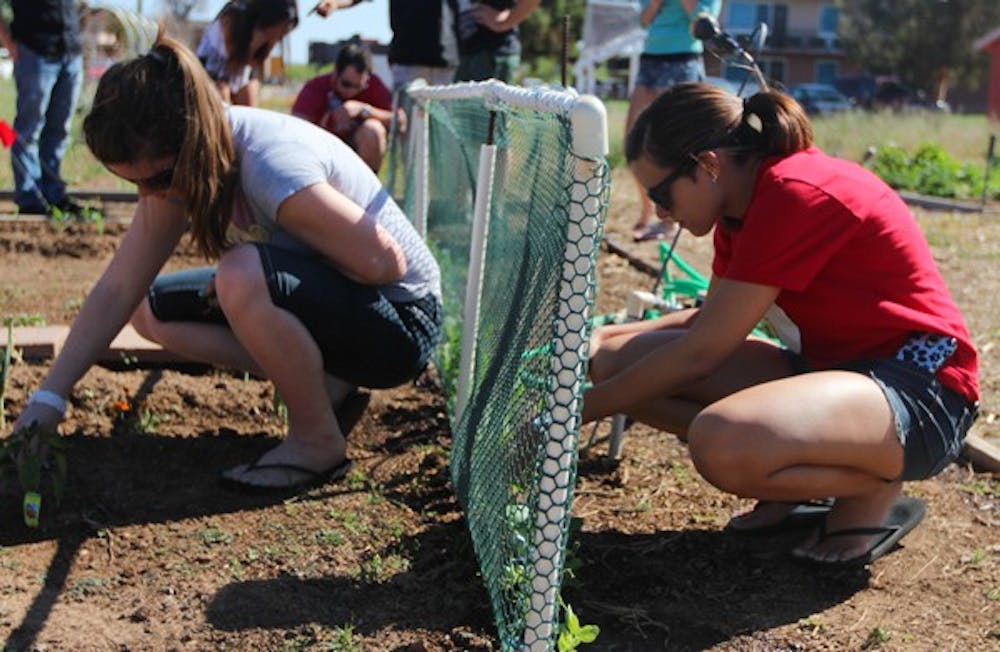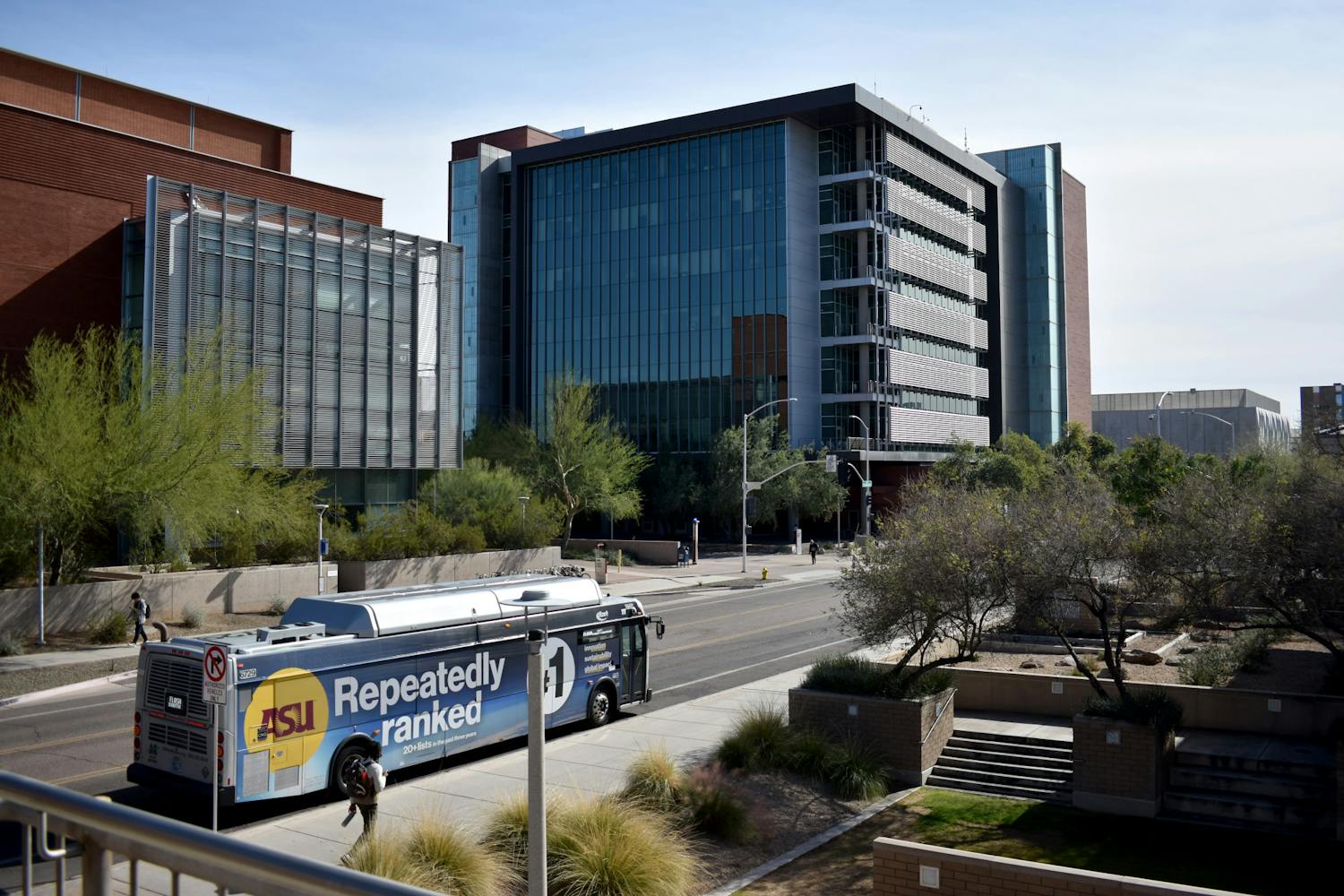 Students from Chandler High School work on a designated plot of land at ASU's Eco Garden. The garden, located on the Polytechnic campus, is home to student gardeners and community members alike. (Photo by Dominic Valente)
Students from Chandler High School work on a designated plot of land at ASU's Eco Garden. The garden, located on the Polytechnic campus, is home to student gardeners and community members alike. (Photo by Dominic Valente)The Polytechnic campus' North Desert Village is home to Poly Gardens, a program that allows students to grow their own produce and live near the area they garden.
Poly Gardens is part of a larger program, Eco-Village, which consists of 10 two- and three-bedroom houses located between Raven and Amulet streets. The students in this area want to practice sustainable living.
Electrical engineering senior Saul Tiscareño works as the area's community assistant. He said programs such as Eco-Village are necessary to teach people about the importance of caring for the planet.
"It's important for our future to help set an example," Tiscareño said. "I think it is important for us to be involved, so we can educate others."
Eco-Village is made up of two parts: the garden district and the bike co-op. Student residents must participate in one of these areas or attend additional sustainability programming.
The bike co-op allows students to repair bikes for those on campus, get involved with teaching bike repair clinics and participate in recreational outdoor activities.
The garden district allows students to take charge of plots, where they typically grow corn, kale, lettuce, broccoli and beans.
Tiscareño said this area is highly popular, even though many do not know much about gardening.
"A lot of people like the garden, and I know a lot of people have shown interest in gardening or they want to try and garden," Tiscareño said.
The garden district also allows horticulture teachers from ASU and Chandler-Gilbert Community College to show students how to grow plants by holding plots in the garden.
Tiscareño plans additional sustainability programming each month. In the past, these programs have included classes on gardening and composting, which is something in which many residents participate.
Haley Burrow, the assistant community coordinator for housing at the Polytechnic campus, said Eco-Village is a high-interest area that holds 18 to 35 students and can only be joined by invitation when students express interest in the program.
Eco-Village, which was started by a group of students and teachers, is only in its second semester but is still looking for ways to improve and become more sustainable, Burrow said.
"They are always looking for new ideas and new ways to make that area more sustainable," Burrow said. "There are a lot of improvements that are going to be happening in that area. There are tons of opportunities; you just have to express the interest to live there."
Burrow said many people enjoy the benefits of living in the area, which include eating the garden vegetables.
"Any of the students that live in the area can go to the garden and harvest whatever they want to eat," Burrow said.
Engineering junior Murrell Rizon originally got involved with Poly Gardens to practice sustainable cooking.
"(I got) involved to increase my knowledge in sustainable living and cooking and to be able to share that with my friends and relatives," Rizon said.
Business administration junior Deondray Williams said his experience at Poly Gardens enables him to to share his knowledge with others.
"You can do a lot more than buying produce from the store," Williams said. "You can grow it on your own, and you can teach other people those skills. It's just like a big movement when you are willing to learn and teach others."
Math junior Chris Bellin said by living sustainably through conserving, he hopes to create a better planet for those that come after him.
"Throughout the generations leading up to this, (sustainability) wasn't a problem, but now it is a problem," Bellin said. "If we don't do something about it soon, I am kind of worried about what kind of world we are going to leave future generations."
Reach the reporter at sgslade@asu.edu or follow her on Twitter @shelbygslade




